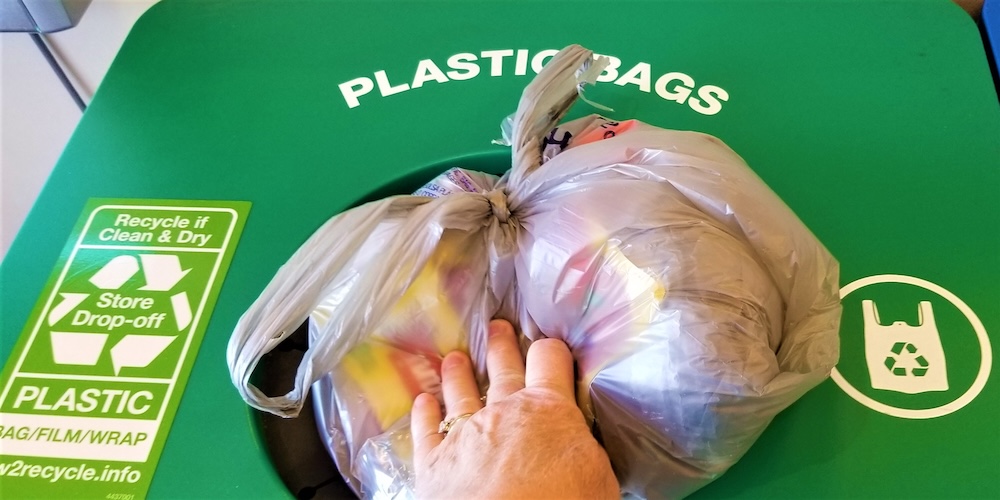The Truth About Plastic Bag Recycling
In 2025, plastic bags remain one of the most visible and controversial forms of consumer waste. While many stores offer collection bins or tout bag recycling, the reality is far more complex—and often misleading. So the question stands: Is recycling plastic bags truly a zero waste solution?
The short answer is no. Recycling plastic bags is rarely efficient, and in most cases, it’s a partial solution at best. True zero waste systems aim to eliminate waste entirely, not just manage it after the fact. Let’s break down why plastic bag recycling isn’t the answer we’re led to believe—and what alternatives are actually sustainable.
What Are Plastic Bags Made Of?
Most plastic bags are made from low-density polyethylene (LDPE), a type of plastic derived from petroleum. While technically recyclable, LDPE requires special handling and cannot be processed through most curbside recycling systems.
Why LDPE Recycling Is Problematic
- Easily entangles in recycling equipment
- Contaminates batches of otherwise recyclable materials
- Requires separate collection and sorting
- Recycled plastic bags are often downcycled into lower-quality products (like plastic lumber)
What Happens to Recycled Plastic Bags?
When collected properly, plastic bags may be:
- Turned into composite decking or park benches
- Used to manufacture new bags (rare)
- Shipped overseas for processing (often under unregulated conditions)
However, the reality is that most bags collected for recycling are landfilled or incinerated, either due to contamination or lack of infrastructure.
Is Recycling Enough for Zero Waste?
No. The zero waste philosophy emphasizes refuse, reduce, and reuse before recycling. Recycling is the last resort—not the goal.
Zero Waste Hierarchy
- Refuse: Say no to single-use plastics
- Reduce: Minimize packaging and consumption
- Reuse: Opt for durable, washable options
- Recycle: Only if no other option exists
- Rot: Compost natural materials
Environmental Impact of Plastic Bags
- Average use time: 12 minutes
- Decomposition time: 500–1,000 years
- Only 5–10% of bags are actually recycled
- Harm marine life and contribute to microplastic pollution
Even if technically recyclable, plastic bags are one of the least circular forms of packaging.
Better Alternatives to Plastic Bags
Reusable Bags
- Made from cotton, jute, hemp, or recycled plastic
- Can last for hundreds of uses
- Reduces dependency on single-use systems
Paper Bags
- Biodegradable and compostable (when uncoated)
- Energy-intensive to produce, so still best to reuse
Bioplastic and Compostable Bags
- Degrade under industrial composting conditions
- Still controversial due to microplastic concerns and lack of facilities
What Can You Do Instead?
As a Consumer
- Bring your own reusable bags
- Decline bags for small or manageable purchases
- Choose unpackaged goods when possible
- Learn local recycling rules and avoid contaminating bins
As a Business
- Offer paper or reusable bag incentives
- Educate customers on proper disposal
- Eliminate plastic bag use entirely where possible
- Consider closed-loop systems for reusable packaging
Common Questions About Plastic Bag Recycling
Are plastic bags recyclable at home?
No. Most curbside programs do not accept them. Drop-off locations are required.
What happens if I put plastic bags in the blue bin?
They can jam machinery, contaminate other recyclables, and increase landfill waste.
Are biodegradable bags a good alternative?
Not always. Many require high-heat composting facilities that are not widely available.
What’s the most sustainable option?
Durable, reusable bags made from natural or recycled materials. And most importantly: using them often.
Does bag recycling reduce pollution?
Only marginally. Avoiding and reusing bags is far more effective.
Final Thoughts: The Bag You Don’t Use Matters Most
Recycling plastic bags feels good—but it’s often a case of wishcycling rather than impact. In a truly zero waste lifestyle, reduction and refusal are more powerful than recycling.
So next time you’re offered a bag, ask: Do I really need this? Because the most sustainable bag isn’t one that gets recycled—it’s the one that never existed.








